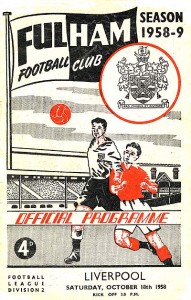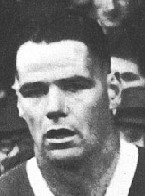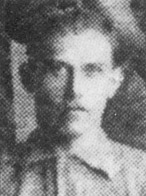Fifty years and one day before Liverpool travel to the Emirates Stadium for an FA Cup 5th round tie, the two sides met at Arsenal’s old home of Highbury, Liverpool progressing thanks to Ian St John’s goal.
A week before the cup tie, the Reds were beaten 3-1 by Everton at Goodison Park, meaning they dropped to third in the table. But there was no time to dwell on the derby defeat for captain Ron Yeats, who travelled to Largs straight after the game with victorious opponents Jimmy Gabriel and Alex Scott for a Scottish national team training camp.
Melwood was quieter than normal on the Monday and Tuesday, with Yeats in Scotland and Roger Hunt, Peter Thompson and Gorson Milne at an England squad get together in Matlock. Bill Shankly was not happy about Alf Ramsay’s sessions at all, especially when Blackburn’s Keith Newton suffered cartilage damage. He told the Daily Post: ‘It might so easily have been one of our own players. This special training question is a matter of doing something that is going to be useful at the right time. It might have been better at the get-together to have been satisfied with talks and tactical functions without any real strenuous exertions. They actually played two games, players at this time of the season do not need extra training.’
Shankly was also not happy about Liverpool’s kick off being put back to 3.15pm, to ease congestion as Tottenham were also at home that day, starting at 2.45pm. The Reds’ party was booked to return on the 6pm train but despite protestations the kick off time was upheld and the Metropolitan Police promised to escort the players to Euston. Around 15,000 Liverpool fans made the journey to North London, with nearly 1,000 travelling with Ribble Motor Company, whose coaches set off at 11.30pm on the Friday night. A select group even travelled by plane, the Shareholders’ Association chartering a 58 seat Viscount aircraft which was £6 for the return flight and coach to Highbury.
Following a poor attacking display against Everton, Shankly decided to make a change and dropped Jimmy Melia, bringing in young forward Alf Arrowsmith in his place. The teamsheet implied that Arrowsmith would be an inside forward as he was numbered ten, but when the players took up position it was clear he would be playing in the centre with St John taking up Melia’s role. This confused Arsenal as they were subjected to him chasing everything very early on, linking well with Ian Callaghan and almost forcing Ian Ure into a short backpass. Arrowsmith was everywhere, on one occasion going down the right wing to put in a cross that was shepherded back to keeper Jim Furnell by Vic Groves, only for the Reds forward to run up and try to block the kick from his hands.
Arsenal were beginning to get on top early on, with Tommy Lawrence saving from both Geoff Strong and John Snedden and Ron Yeats needing to be his best to win the aerial battles. Then in the fifteenth minute the Reds took the lead with their first real chance of the game. Gordon Milne floated a ball into the box and St John ghosted in unnoticed at the far post to score with a low header that was greeted by pandemonium amongst the Liverpool fans amassed on the Clock End. Less than a minute later Arsenal were almost level when Strong hit a shot that Lawrence couldn’t hold but Gerry Byrne got there to clear the danger.
Lawrence had another escape when he dropped the ball from a corner and Yeats cleared but only as far as Eastham. He fired the ball low towards the goal but the Reds’ keeper made up for the previous error by turning the ball around the post. Arsenal then had a huge penalty appeal turned down when from a corner Eastham’s shot was blocked on the line by Ronnie Moran, with the crowd screaming for handball. Photographs later showed it had been headed away but even if it had struck Moran’s hand it had been travelling so fast there was no way he could have got it out the way. They had two more appeals turned down in quick succession with fouls being waved away and this led to some oranges being thrown at the referee and linesman. They could only sportingly applaud Lawrence though when he made what Leslie Edwards described as the ‘save of a lifetime’ in that night’s Echo, the Reds’ keeper managing to adjust his dive in mid air to turn away a deflected Armstrong shot.
Seven minutes before half time Joe Baker and Yeats went down together after a foul on the Liverpool skipper. Both got up exchanging punches before Yeats went back down with a cut eye, leading to Bill Shankly coming onto the pitch to check he was ok. The referee, who had been following play, came back and promptly dismissed both men from the field and told Shankly to leave too, but not before he had quickly given some tactical instructions to players. It led to both sides having fiery tempers and St John was furious when he was denied a penalty after apparently being tripped from behind by Billy McCulloch. The Arsenal left back then turned his attentions to Ian Callaghan, fouling him near the touchline and receiving a booking, while the Liverpool winger needed treatment. There was little more goalmouth incident before the break, the only chance of note being a Strong header that was well held by Lawrence.
Thankfully for the Reds the half time interval did Callaghan good and he came out not showing no signs of limping. He was soon a danger down the flank and put in a cross for Arrowsmith but his volley was just wide. Arsenal were not playing like a team that were a goal down in a cup tie, as they passed the ball around too much and didn’t try to break the strong Liverpool defence, which now had Willie Stevenson playing at centre half with St John dropping from inside left to left half. Too many times they resorted to long shots and the Reds were happy to sit back and try to catch them on the break for a second goal. Despite the beckoning of Strong, too many of the home players remained near the halfway line with only Eastham posing any real threat. Liverpool looked more likely to increase rather than surrender their lead and Peter Thompson had a low right foot shot well held by Furnell. Lawrence was first called into action when Armstrong crossed for Strong, whose downward header was caught by the keeper.
Towards the end of the game Arsenal did increase the pressure, but Stevenson was doing a great job at centre half and on one occasion cleared a Snedden header off the line. Arrowsmith was by now playing as a lone striker and struggled to deal with the offside trap, but he did spring it once to round Furnell only to roll the ball wide. Liverpool continued to weather the storm, then in injury time Arrowsmith again broke clear and went past Furnell, only to be rugby tackled by the ex Reds’ keeper. A penalty was awarded but Hunt’s kick was saved by Furnell. There was no time for Arsenal to go down the other end and score and the final whistle was greeted with a pitch invasion by hundreds of travelling fans. Also with them was Yeats, who couldn’t bear to watch the game after his sending off so had instead changed and gone to a local coffee bar, arriving back just as Hunt was placing the ball on the penalty spot.
It was a great victory for the Reds. They hadn’t played attractive football but they had done what they needed to do and Bill Shankly said afterwards: ‘We knew it would be hard, we prepared for a tough fight. I was proud of Liverpool, every man Jack of them.’ St John called it a ‘real tonic after we were right down in the dumps after our showing against Everton.’ The Reds may have had a police escort to get them home but not all fans had it so easy. Twenty fans missed their coach and had to come home courtesy of British Rail, who agreed to let them travel without tickets providing they promised to pay when sent a bill. The Reds were through to the quarter finals for the second year in a row, but were surprisingly beaten 2-1 at home by Swansea in the next round.







